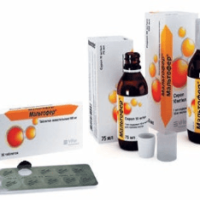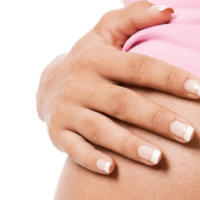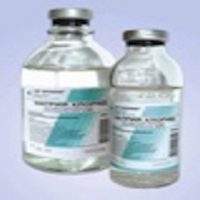 You are pregnant and jubilant about it, to say the least. You are happy with the thought of showing off your pregnant belly, attending pre-natal exercise sessions and joining other pregnant couples at regular meet-ups.
You are pregnant and jubilant about it, to say the least. You are happy with the thought of showing off your pregnant belly, attending pre-natal exercise sessions and joining other pregnant couples at regular meet-ups.
You are reading up on all the changes that are likely to happen in your body, thanks to the little one growing inside, and the hormonal changes set in motion to support and nourish the little one.
One such change that might happen during your pregnancy is vaginal swelling. Although it is not uncommon, not many women know or read about it. Here’s your know-it-all guide to vaginal swelling during pregnancy, the dos, the don’ts and the happy endings.
Causes Of Vaginal Swelling During Pregnancy
- An increased blood flow in the vaginal area can cause mild to moderate swelling. Sometimes this increased blood supply could lead to increased sensation around the area
- Veins in the uterus get compressed during pregnancy. This constriction could possibly cause a mild swelling in the vagina
- A swollen vagina during pregnancy could also be a result of bacterial infections such as bacterial vaginosis or yeast infections such as candidiasis
- In pregnant women, the levels of estrogen and progesterone are higher than those in non-pregnant women. The increased levels of these hormones are a perfect thriving place for yeast. Hence, hormonal fluctuations cold play a role in causing vaginal swelling during pregnancy
- Poor hygiene or sexually transmitted diseases such as gonorrhea or trichomoniasis could also be one of the causes of a swollen vagina during pregnancy
- Also, your bath, body and skin care products could contain irritants. Using these products during pregnancy could lead to an inflamed vagina
- Prolonged sexual intercourse or lack of adequate lubrication leading to a gruff entry can also potentially be a cause of vaginal swelling in pregnant women
Symptoms Of Vaginal Swelling During Pregnancy
Some of the most common symptoms of vaginal swelling include:
- Pain and irritation around the vagina
- Bleeding blisters or sores
- Foul smelling vaginal discharge
- Burning and painful urination
- Inflammation around vaginal area
- Itching in the inflamed area
Is Vaginal Swelling During Pregnancy Normal?
As mentioned earlier, vaginal swelling during pregnancy is normal. Sometimes women can experience a shooting pain along with the edema. This could be due to long hours of sitting in one position or standing for too long.
If, however, you start experiencing sharp shooting pains during urination, itching around the vagina along with a thin grayish-white discharge, then it is best to consult your gynecologist as this is a clear indication of bacterial vaginosis.
If you observe redness of the vagina and labia, experience pain and burning sensation during urination, and observe a thick whitish-yellow discharge which may or may not be accompanied by a foul smell, then a quick gynecological consult could be the best solution. These symptoms are indicative of a yeast infection such as candidiasis.
How Can Vaginal Swelling Be Treated?
- Avoid scratching the vaginal area if there is inflammation and itchiness in that area. This is because scratching can result in spreading the infection to the nearby areas
- Allopathy medicines are generally not prescribed during pregnancy. hence, upon confirmation of a yeast infection, the doctor could prescribe simple, over-the-counter, topical creams and ointments
- A bacterial infection can be cured with a simple antibiotic plan which needs a thorough understanding of the infection, its spread, and only after assessing the potential risk in administering antibiotics
Home Remedies For Vaginal Swelling During Pregnancy
- Using Cold packs and cold baths will help any kind of inflammation and pain around the vaginal area and soothe the pain
- Drink plenty of water to get rid of any burning sensation or pain during urination
- Garlic is known for its antibacterial and antifungal properties. Applying garlic paste on the swollen vaginal area for a few days will help to bring down the swelling. But a word of caution here: Garlic usage can cause burning so ensure that you start with using small quantities only
- Adding a little apple cider vinegar to your bath tub and soaking your body in it for around 10 -0 minutes will help reduce the effects of any drug therapy as apple cider vinegar as strong antibacterial properties
- Using probiotics is another popular home remedy to maintain the right flora which is needed to maintain proper health
Can Vaginal Swelling During Pregnancy Affect the Growing Fetus?
If the cause of the vaginal swelling is a Group B strep (GBS) infection, then there is a chance that the infection could affect the baby. GBS can cause a urinary tract infection characterized by cloudy urine and burning sensation during urination.
If an expectant mother tests positive for GBS, she is administered antibiotics during the delivery to cut the risk of passing the infection to the child. If antibiotics are not administered during childbirth, the baby could get infected with GBS causing high ever, difficulty in feeding and lethargy.
How To Prevent Vaginal Swelling During Pregnancy?
Like most medical conditions, vaginal swelling can be prevented or the intensity could be controlled during pregnancy. This is how vaginal swelling can be prevented during pregnancy:
- Maintaining high levels of hygiene and wearing comfortable clothes are some of the key preventive steps. This includes keeping the genital area dry and clean, and wearing undergarments made of natural fibers, preferably cotton
- If your skin is already dry and itchy, moisturizing the area well and using lubricants (non-irritant ones) during sexual intercourse should be considered
- As mentioned earlier, drinking plenty of water can ensure pain-free urination and emptying the bladder at regular intervals can cut the risk of bacterial multiplication and spread of infection, if any
- Avoiding the use of fancy beauty and bath products during pregnancy is another way of preventing chemicals and irritants from coming in contact with the skin
- Consuming a nutritious diet comprising foods that boost immunity is the best way to ensure good health of the expectant mother and the growing fetus
While conditions like these could cause an expectant mother much anxiety, it is important to remember that your gynecologist is the best judge of the situation. Consulting your gynecologist in place administering self-medication during pregnancy can reduce anxiety and simplify many a concern.
Did you experience swollen vagina problem during pregnancy? How did you treat it? Share your experience in the comments section below. Wish you all a happy and safe pregnancy!









